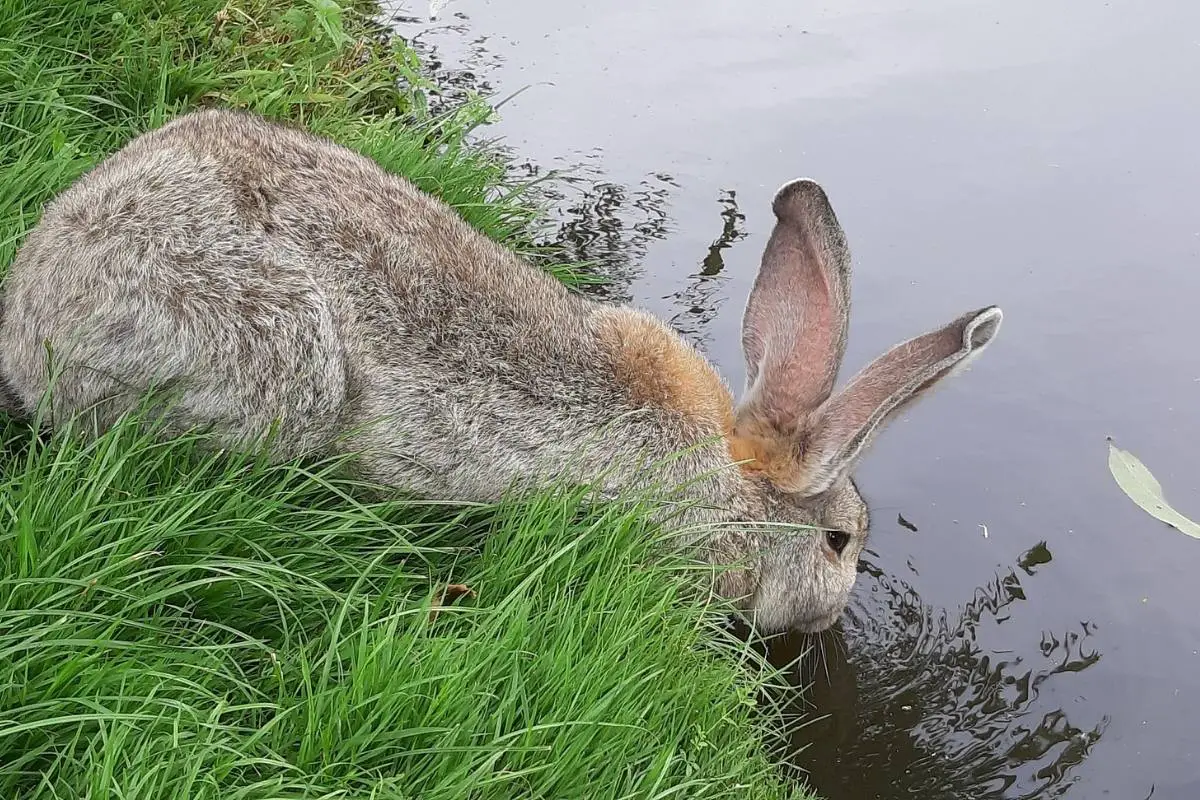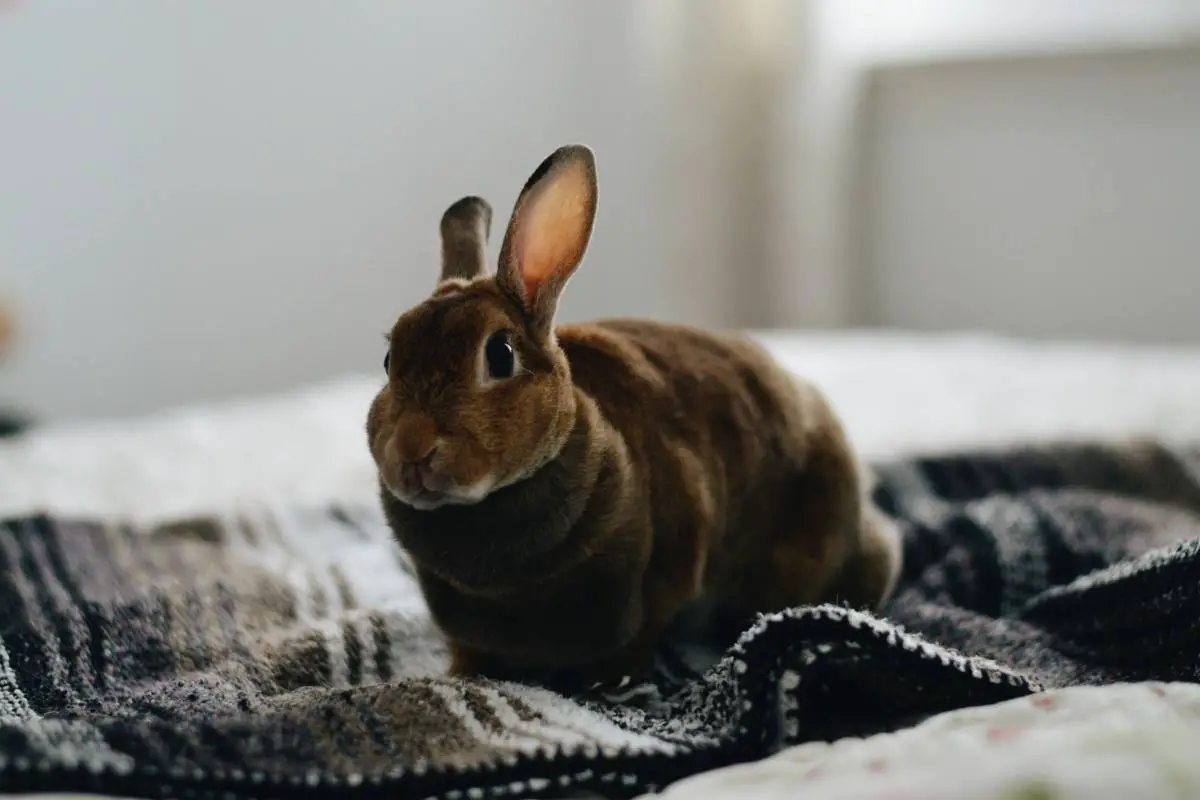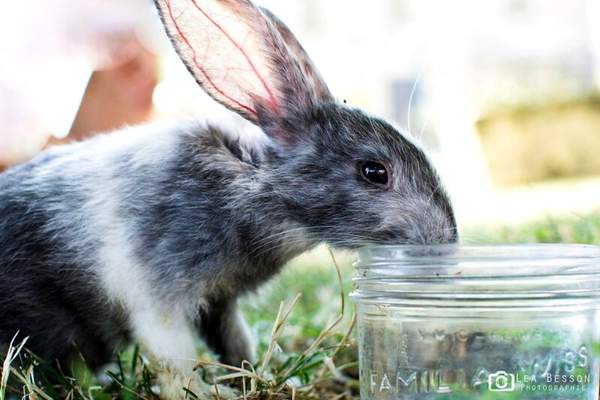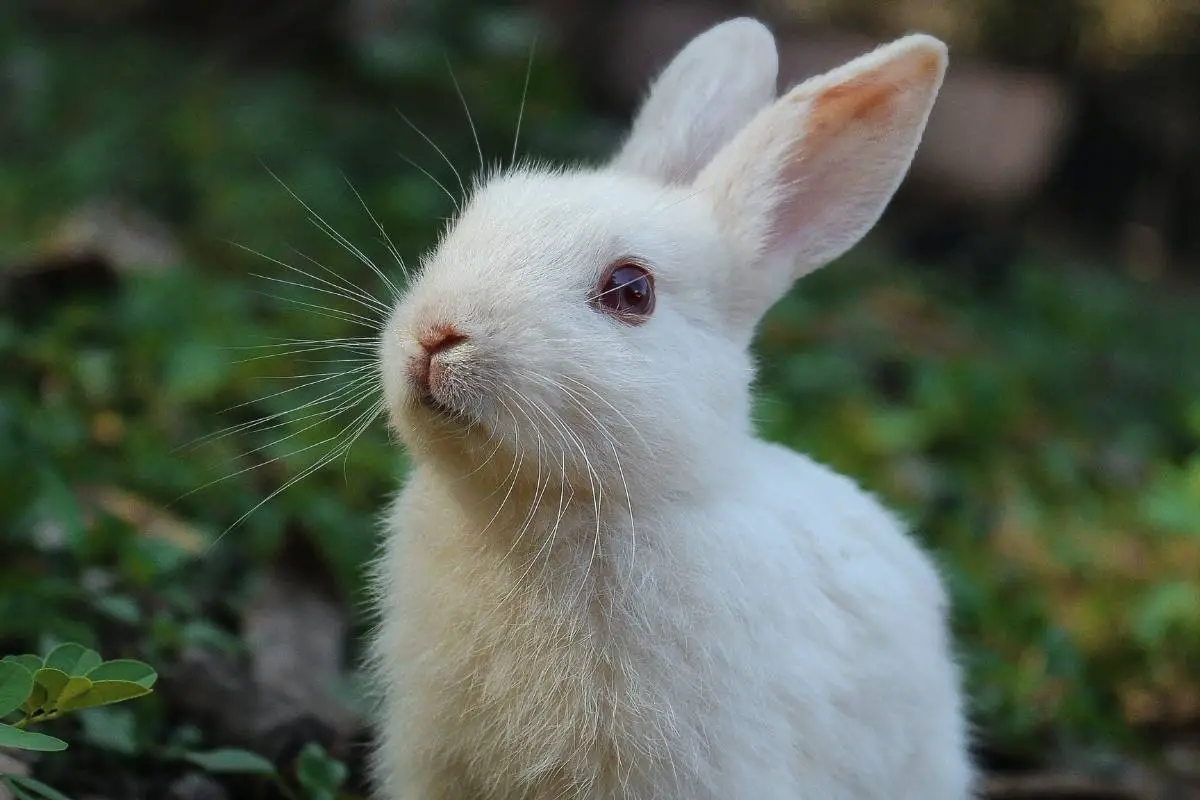Water bottles are a popular way to offer rabbits water for several reasons. They stay cleaner longer, they can’t be spilled or thrown around, and they hold more water than most water crocks. However, some rabbits are reluctant to drink from a water bottle.
So, why won’t my rabbit drink from a water bottle? Some rabbits can be picky about the flavor and temperature of their water. Others may be using another source of water or may struggle to figure out how a water bottle works. Finally, a problem with the water bottle itself may be the issue.
In this article, you’ll find a full rundown of reasons your rabbit won’t drink from a bottle, followed by tips on how to overcome its reluctance and make sure it’s staying safely hydrated.
8 Reasons Why Your Rabbit Won’t Drink from Its Bottle

Studies have shown that rabbits prefer to drink out of a crock rather than a water bottle. To drink from a water bottle, they have to tilt their head into an uncomfortable position. Drinking from a low bowl is much more natural for them.
So why do we insist on trying to get them to drink from a water bottle? Crocks are much more likely to get stepped in, spilled in, and even urinated in, making them far less sanitary than a water bottle. They’re also more likely to get tipped, leaving your bunny without water until the next time you check on them.
For these reasons, transitioning your rabbit to drink from a water bottle is well worth the effort. Just keep in mind that it may take some coaxing if your rabbit is disinclined to cooperate.
1 – Doesn’t Know How to Use the Bottle
Rabbits that have drunk from a crock in the past may not realize that water is available in the water bottle, and they may take a little while to figure out how to access it. It’s important to make sure your bunny is staying hydrated during this transition period.
To help your rabbit discover the water bottle and learn how to use it, continue to offer water in a crock, but place it just below the nozzle of the water bottle. While your rabbit watches, squeeze a little water out of the bottle, so that it drips into the crock. Once your rabbit has grown accustomed to getting water in this area, remove the crock and watch to be sure your rabbit is now seeking water from the bottle.
If your rabbit still won’t try the bottle, try dabbing the tip of the water bottle nozzle with a little molasses, maple syrup, or another safe, natural sweetener. Most rabbits will immediately start licking the molasses which will activate the bottle and show them how it works. This trick shouldn’t be repeated too often as rabbits shouldn’t have too much sugar, but once or twice is usually all it takes.
2 – Doesn’t Like the Taste of the Water
Who knew rabbits could be so selective about water quality? It’s true though. Some rabbits will turn up their noses at water that tastes strange to them. This could be caused by the plastic of the water bottle leaching flavor into the water or by the quality of the water itself. Tap water with a high mineral content can contain enough flavor to make your rabbit avoid it.
It’s best to use a glass water bottle or one that is made of high-quality plastic. Replacing the water daily will keep it tasting fresh. If you think the taste of your tap water is the issue, you may need to start using filtered or purified water instead. You can also coax your rabbit to drink its water by adding a few drops of organic, unsweetened pineapple juice.
3 – Doesn’t Like the Temperature of the Water
A rabbit may avoid drinking water that is too hot or too cold. It’s best to fill a water bottle with water that is slightly cool to room temperature. Also make sure that your rabbit’s water bottle is not directly in the sun or in some other way prone to dramatic temperature changes.
4 – Dental Disease

Rabbits’ teeth continue to grow throughout their lifetime. Usually, they wear down naturally as the rabbit chews its food and toys. However, a misalignment of the teeth—known as malocclusion—or overgrown incisors may cause your rabbit to have difficulty eating or drinking from a water bottle.
Dental issues can also make your rabbit’s teeth sensitive or create cuts and sores on its mouth and tongue, making drinking even more painful and difficult. If you suspect your rabbit has any of these issues, it’s important to see a vet as soon as possible.
5 – Clogged or Defective Water Bottle
A water bottle can become blocked if debris, algae, or mineral deposits build up in the nozzle. Some bottles may also fail to function if the nozzle is screwed on too tightly or loosely, creating a vacuum that keeps the water from flowing freely.
Cleaning the water bottle regularly should keep the nozzle from becoming clogged. If a blockage has occurred, start out by soaking the nozzle in warm water with a drop of bleach or dish soap for around 30 minutes. Then use a pipe cleaner or cotton swab to clean out the inside of the nozzle, further loosening any debris. Rinse the nozzle thoroughly before screwing it back in place.
6 – Another Water Source
A rabbit that seems to be staying fully hydrated without appearing to touch its water bottle, is likely getting its water from some other source. This could be a crock, another pet’s dish, or a low fountain. Rabbits that are eating a lot of fresh vegetables or greens will also drink less as they get much of their fluids from the green stuff.
7 – Dirty Water
If you haven’t replaced the water in the water bottle for a while, or if a piece of hay or food has somehow found its way inside, a picky rabbit may refuse to drink from the bottle until the water has been replaced.
Fresh water should be given at least once a day. Water bottles should also be washed with soap and water regularly to keep algae and bacteria from building up inside.
8 – Illness
A rabbit that is refusing to drink may be ill. If it shows any other symptoms of feeling unwell, you’ve tried the above measures and none seem to work, or your rabbit shows signs of dehydration, you should contact your vet as soon as possible.
Making Sure Your Rabbit Stays Hydrated

Hydration is essential for your rabbit’s health. If your rabbit is refusing to drink, it’s important to address the issue as quickly as possible. Following are some signs of dehydration in a rabbit.
- Little to no urine
- Thick, dark urine
- Dry, hard fecal pellets
- Crusty eyes
- Lack of appetite
Offer a Crock
If you think your rabbit’s dehydration is due to its refusal to use the water bottle, then by all means, offer a crock of fresh, clean water instead. A crock will need checked and cleaned more frequently, but your rabbit’s hydration is far more important than a bit of inconvenience. Choose one that is heavy enough your rabbit won’t be able to tip or toss it too easily.
Soak Fresh Greens
You can also increase your rabbit’s hydration by soaking a handful of its favorite veggies or greens in cold water for 30 to 60 minutes until they are crisp with extra fluid before offering them. Even just giving the greens a good rinse beforehand and leaving the excess water will get some more fluid into your rabbit.
Flavor the Water
You don’t want to go too far with flavoring the water, but a few drops of organic fruit juice won’t hurt your bunny and may entice it to take a few sips of water. Once it’s started drinking again, you shouldn’t have to continue with the flavoring.
Offer Water in a Syringe
If necessary, rabbits may also be given water with the help of a needleless syringe. Use the syringe to slowly dribble fresh, room-temperature water into the corner of your bunny’s mouth, stopping frequently to allow it a chance to swallow.
Don’t give too much at a time, and if the water starts running out of the corner of its mouth, stop and try again later. It is best to consult your vet before trying to hydrate your rabbit this way or if the dehydration persists.
Conclusion
With these tips and tricks, it shouldn’t be too hard to get your rabbit to start drinking from a water bottle. However, if nothing works, and your rabbit remains steadfastly averse to the bottle, you may need to give in and get a crock or an automatic waterer with a small drinking cup. After all, your rabbit’s hydration is essential to its overall health.

